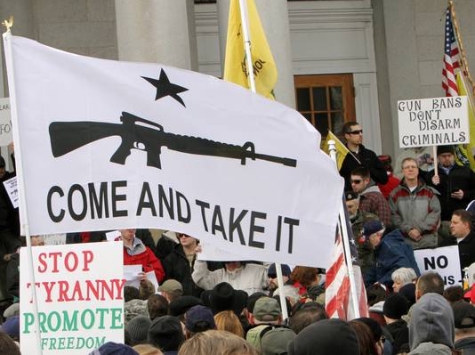Pro-victim, anti-gun ideologues suggest we do not need guns because the police serve as the guardian of law-abiding citizens. This notion is false. Warren v. D.C. was a 1981 Washington, D.C. appeals court case in which local law enforcement was found not liable for failing to properly dispatch and respond to a home invasion that led to three women being raped and beaten repeatedly over a period of 12 hours.
The court held law enforcement has no duty, barring a special relationship, to victims of criminal acts. In today’s world, the national average police response time is 11 minutes, but as Warren illustrates, the police won’t always be there, and 11 minutes is a long time to be defenseless. This decision and others may provide a legal foundation, though, for the next argument against gun control.
DeShaney v. Winnebago County involved a four-year-old boy’s removal from his father’s home into social service’s custody. The boy was later returned to his father, whereupon social workers documented further abuse until the boy was beaten to the point of severe mental handicap. The Supreme Court held against the mother, who petitioned on behalf of her son to have Social Services held liable for returning the boy to his father after observing abuse. The majority decision deemed the boy’s right to due process was not violated because:
…it is the State’s affirmative act of restraining the individual’s freedom to act on his own behalf – through incarceration, institutionalization, or other similar restraint of personal liberty – which is the “deprivation of liberty” triggering the protections of the Due Process Clause, not its failure to act to protect his liberty interests against harms inflicted by other means.
The Constitution, along with the majority opinion in Deshaney, recognizes our three most fundamental rights as Life, Liberty, and the Pursuit of Happiness. These rights cannot be deprived by the state without due process. However, the state is not liable for deprivation of liberty if the act is committed by another individual. Life is inclusive of liberty and, if the state causes a “restraint of personal liberty”, it is a restraint of life.
If guns are confiscated or grossly restricted and/or the right to carry is outlawed or grossly restricted, the means to individually protect life is now restrained. Then, arguably, the state is to preserve an individual’s life and liberty. This situation could be devastating to a state because of the liability and exposure it would have if it failed to thoroughly protect its citizens. Another Warren v. D.C. would potentially go in the plaintiff’s favor.
Cases such as Heller v. D.C. and McDonald v. Chicago established the right to keep and bear arms as an individual, Constitutionally-protected right extending to the states. The 7th District’s recent decision in Moore v. Madigan to overturn Illinois’ ban on concealed carry is a shift towards defining self-defense and the Second Amendment as inclusive of each other.
Reality is a harsh reminder that we, not the state, are responsible for our safety when we have the right to carry and own firearms for protection. If we are disarmed and the courts reject the above argument, then who is to defend our life and liberty? Remember that the next time someone argues in favor of gun control.

COMMENTS
Please let us know if you're having issues with commenting.